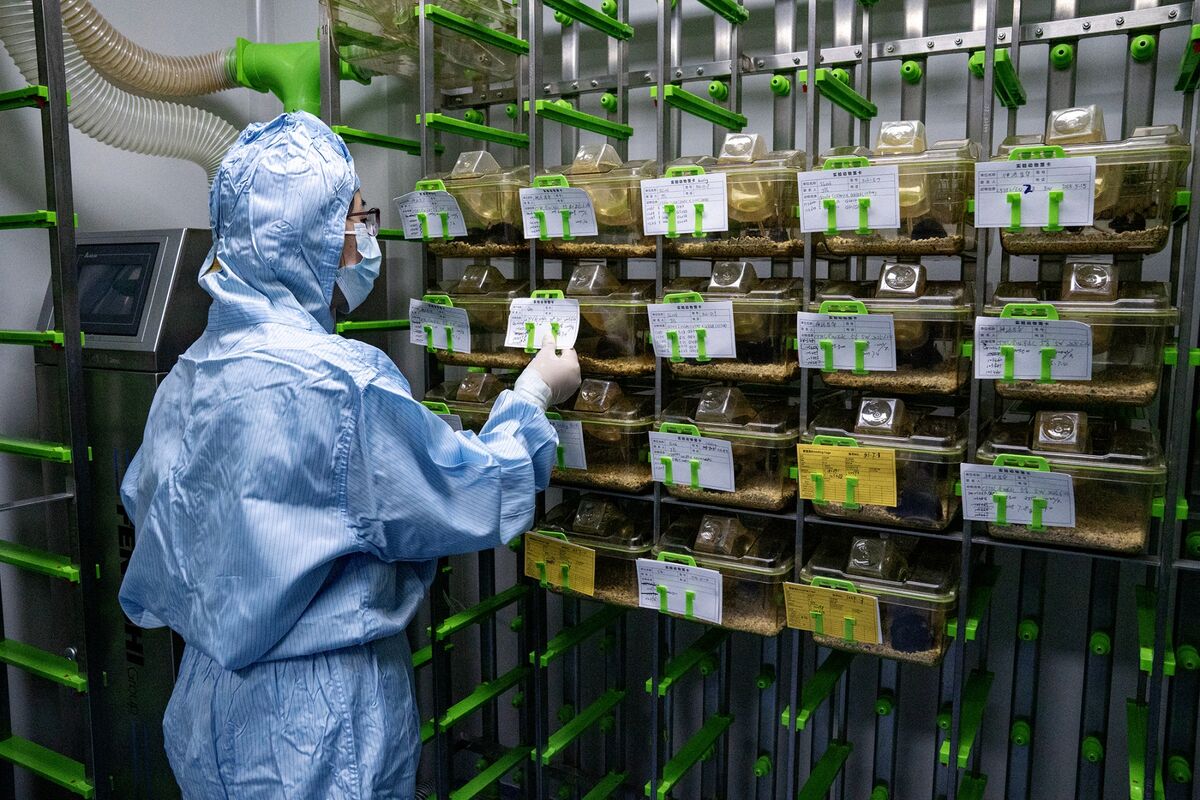Science
China Accelerates Genetic Research to Dominate Biotech Sector

China is significantly increasing its investment in genetic experiments as part of its strategy to establish itself as a leading force in the global biotechnology sector. This initiative is driven by the nation’s ambition to enhance its capabilities in genetic research and development, poised to reshape healthcare and agricultural practices.
The country’s commitment to advancing biotechnology was underscored by a recent announcement from the Chinese government. In 2023, China allocated approximately $1.4 billion through its National Key R&D Program specifically targeting genetic research. According to the Chinese Academy of Sciences, this funding is aimed at fostering innovation and developing technologies that can compete on a global scale.
Strategic Investments and Research Goals
China’s strategy emphasizes the importance of genetic engineering and biotechnology in addressing vital health and food security challenges. The government is particularly focused on enhancing the efficiency of crop production and developing new medical therapies through cutting-edge research.
Recent reports indicate that significant resources are being funneled into animal experiments, which are crucial for testing genetic modifications before human applications. These experiments are conducted in various research facilities across major cities, including Beijing and Shanghai. The research aims to create genetically modified organisms (GMOs) that can withstand environmental stresses and improve yield.
The Chinese government views these advancements as essential for reducing dependency on foreign technology and securing a position as a global leader in biotechnology. The focus on animal experiments is part of a broader effort to accelerate innovation and commercialization of biotech products.
Global Implications and Competition
China’s intensified efforts in biotechnology also highlight the growing competition between major global players, particularly with the United States. As both countries invest heavily in biotech, the potential for breakthroughs in genetic research could have far-reaching implications for global health and agriculture.
Experts predict that advancements in genetic engineering could lead to significant improvements in disease resistance and crop resilience, potentially transforming food supply chains. The race for supremacy in biotech is not just about economic growth; it also carries implications for national security and self-sufficiency in critical sectors.
As China pushes forward with its ambitious plans, the international community watches closely. The implications of these developments will resonate beyond national borders, influencing global standards and practices in biotechnology.
The ongoing research and investments signify a pivotal moment in the biotech landscape, where the actions taken today will shape the future of health and agriculture for years to come.
-

 Technology5 months ago
Technology5 months agoDiscover the Top 10 Calorie Counting Apps of 2025
-

 Technology2 weeks ago
Technology2 weeks agoOpenAI to Implement Age Verification for ChatGPT by December 2025
-

 Health3 months ago
Health3 months agoBella Hadid Shares Health Update After Treatment for Lyme Disease
-

 Health3 months ago
Health3 months agoAnalysts Project Stronger Growth for Apple’s iPhone 17 Lineup
-

 Health3 months ago
Health3 months agoErin Bates Shares Recovery Update Following Sepsis Complications
-

 Technology5 months ago
Technology5 months agoDiscover How to Reverse Image Search Using ChatGPT Effortlessly
-

 Technology3 months ago
Technology3 months agoElectric Moto Influencer Surronster Arrested in Tijuana
-

 Technology2 months ago
Technology2 months agoDiscover 2025’s Top GPUs for Exceptional 4K Gaming Performance
-

 Technology5 months ago
Technology5 months agoMeta Initiates $60B AI Data Center Expansion, Starting in Ohio
-

 Technology5 months ago
Technology5 months agoRecovering a Suspended TikTok Account: A Step-by-Step Guide
-

 Health5 months ago
Health5 months agoTested: Rab Firewall Mountain Jacket Survives Harsh Conditions
-

 Lifestyle5 months ago
Lifestyle5 months agoBelton Family Reunites After Daughter Survives Hill Country Floods




















